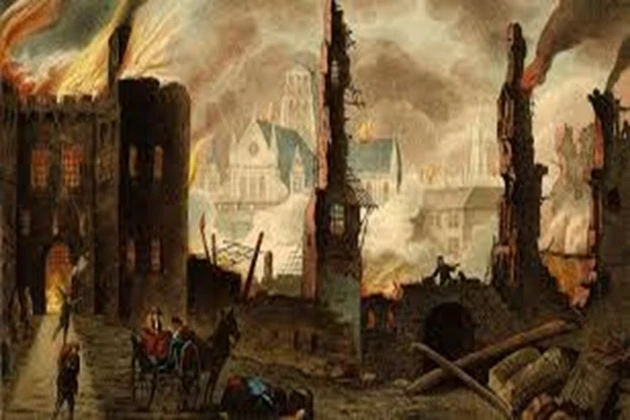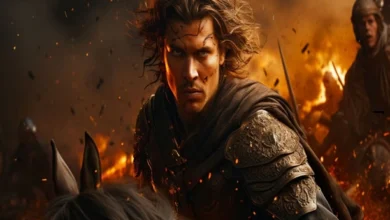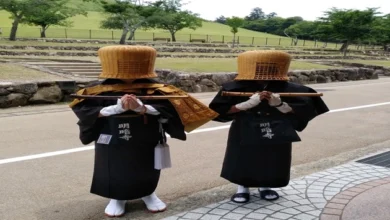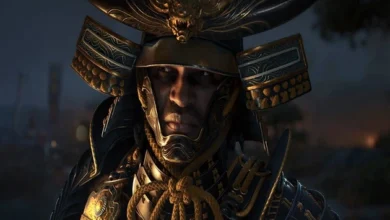The Ancient curse of the Fiery Horse, which is feared even today

In Japan, there is a strange trend: during the years of the Fiery Horse, the birth rate decreased sharply. Parents deliberately take such a step so they don’t have a girl. As it turned out, this is due to an ancient superstition that she would kill her husband. Since then, the 60th year of the sixty-year cycle of the Japanese zodiac calendar has been avoided. This is the year of the Fiery Horse, which brought a decline in the birth rate in 1966 and will be repeated in 2026. The consequences are felt after 18 years when it’s time to get married.
Heigo’s Japanese Superstition

According to the zodiac of Jukan, superstition originates in ancient China. The calendar takes into account the five elements (wood, fire, earth, gold, and water) combined according to the principle of “Onmyodo” (the five elements of Yin and Yang). When imported to Japan from the Korean Peninsula, the calendar began associating with 12 animals. Visit. A F R I N I K . C O M . For the full article. This is how the wood, fire, water, earth, and metal zodiac signs associated with each animal appeared. The Fire Horse gets the 43rd number. In China, it’s called Heigo.
There is a superstition that a woman born in the year of the Fiery Horse will kill her husband. She is credited with strong character traits: determination, perseverance, courage, and strong-willed character, which probably made her unusual in the light of ancient canons, where a woman had to be compliant and obey her husband.
The superstition spread during the Edo period and is associated with Yaoya Oshich, born in 1666, who would later be burned at the stake and accused of arson. According to legend, she took refuge in the temple when there was a fire near her house, and there she met a monk with whom she fell in love. She started deliberately setting fire to houses to hide in the temple and secretly meeting with her lover. She was caught and burned alive. Therefore, the year of the Fire Horse is considered a time when there are many fires.
The birth rate drops sharply every 60 years

There are different ways to treat superstitions, but according to Demographic Statistics, in Japan in 1906, women gave birth to 7% fewer children than the previous year. In 1966, this figure was already 16% lower. Thus, the birth rate fell by 25%, but in 1967, it increased by 42%.
It’s hard to argue with statistics showing that even civilization has not eradicated prejudice. Superstition is so strong that the number of abortions to terminate a pregnancy is increasing this year. Girls are especially undesirable, as they are associated with bad fame. At the beginning of the 20th century, when it was still impossible to know the sex of a child in advance, pregnancy was terminated. Even boys born in the year of the Fiery Horse were recorded a year earlier or later.
Superstition of the Fiery Horse: disadvantages and advantages
This year’s curse began to haunt those born in the year of the Fiery Horse when starting a family. They refused to marry them, fearing the fulfillment of superstition, although there is no evidence that there are many murderers among them.
However, this year has its advantages. Reducing births gives more chances for those who want to study or get a job. Fewer applicants entered universities in 1984, which increased the chances of passing the competition. The following year, the number of students increased significantly, and the birth rate of firstborn children increased by 50.9%. This was the highest birth rate in history.
Strangely, the year of the Fiery Horse affected even the economy. Its growth, which began in the 1960s, collapsed sharply in 1966. Statistics show that in 1960, its rise was 0.84%, and before 1965, it increased to 1.12%, but in 1966, it fell sharply to 0.77%. 1967, it jumped to 1.16% and practically remained at this level until the 1970s.
The year 1966 was critical not only in terms of fertility and marriages. Due to the superstition about the unfavorableness of birth in the year of the Fiery Horse, many women remained at their jobs in 1966, which led to an increase in their number in the world of work. Subsequently, they began to get used to the fact that a woman spends much time at work and does not go on maternity leave.
Is it happiness or misfortune to be born in the year of the Firey Horse
Superstition is a social and economic phenomenon that affects the life of a person born in the year of the Fiery Horse, leaving its mark on the fate of women. “Hinoe uma” is a calendar event that occurs once every 60 years, when it is the turn of the Fiery Horse. A woman born in the year of the Fiery Horse is considered too hot-tempered towards her husband, and she is marked as “unlucky” because of this superstition. Girls born that year were considered dangerous and stubborn, and they brought misfortune to their husbands.
Many tragedies have happened to women born in the year of the Fiery Horse. It was often possible to hear that all their girlfriends were already married, but they remained single. They can’t start a family just because they were born in the year of “haigo”. Some commit suicide, believing that nothing will work out in life or that their loved ones will reject them. Unfortunately, similar cases have occurred in Tokyo’s Shinagawa Beach.
Fires in the Year of the Fiery Horse

Natural philosophy can explain many incomprehensible events, for example, why there are more fires in specific periods than in other years. It connects the sources of everything between heaven and earth.
The belief about the 43rd day of the calendar says that the female horse from “Heigosan” bites the male horse. This was due to the fire of the Oshichi greengrocer’sgreengrocer’s shop during the Teva period in 1682. The fire was linked to the tragic love of Oshichi, who was born in the year of “Heigo.” In 1966, a central London fire destroyed 13,000 houses, which was extinguished for 5 years.
Other significant fires were during the Keho period (1726), Tingmei (in 1786), Hiroka (1846), Meiji (1906), and Showa (1966). The Japanese believe that many fires occur in the year of Hei-um and the Third Rooster, which is why they attribute a fire to a woman who burns her lover’s heart to ashes.
2026 is the year of the Fiery Horse

Local authorities in Japan are trying to hold events that would dispel old prejudices that the year of the Fiery Horse affects a person and marriage. These superstitions are especially strong in rural areas. A youth festival is being held to avoid declining birth rates. The 1966 youth festival affected demographics, as there were fewer participants. The following year, there were more participants again.
The circle is ending, and 2026 will again be the year of the Fiery Horse. Experts hope that common sense will prevail this time. Previously, marriages were arranged between parents, but this is a thing of the past. Unions are built on love, in which there is no place for prejudice, which means that the child will be long-awaited, no matter what year he was born. There are a lot of positive aspects for a girl born in the year of “Haigo.” Being born purposeful, they can achieve great heights and become successful and influential. Therefore, being born in the year of the Fiery Horse is a gift.
According to the characteristic, this year, individuals are born who are adventurers by nature, funny, quick-witted, dexterous, astute, and independent. Their weaknesses are arrogance, inconstancy, and rudeness. But if this is the year of the Red Fiery Horse, then the representatives of this sign will not be envied – they are destined to undergo severe trials. The women born this year are not young ladies in lace.
They are independent, have a short temper, and should not be restricted in their freedom. It was probably for this reason that Japanese women rebelled. They had to obey but could not be restricted in their freedom. Because of this, a persistent superstition has emerged, which may be dispelled in 2026. It takes time.




